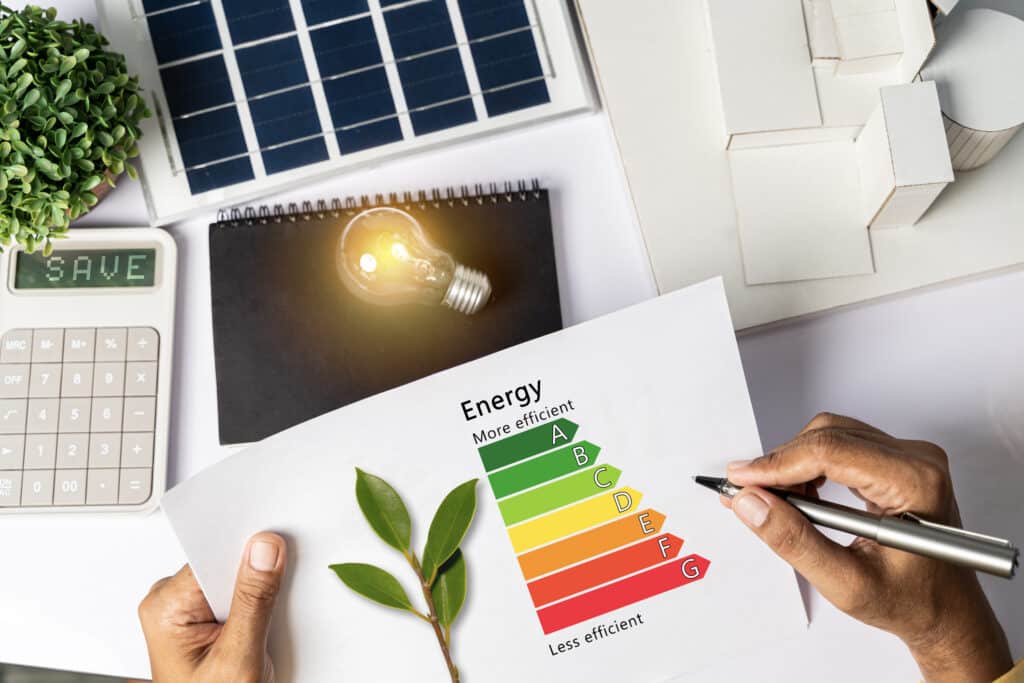Expert Tips on Managing Home Energy Consumption

In today’s world, managing home energy consumption is more than just a way to save on bills; it’s a step towards sustainability. Many homeowners across Florence, SC, and beyond are seeking ways to reduce their energy use without compromising on comfort. Whether you live in the bustling streets of Woodland Park, SC, or the quiet surroundings of Winona, SC, there are smart practices and upgrades that can make a significant difference. From simple habits to thoughtful investments, the journey to lower home energy consumption starts with being informed.
Understanding how energy is used in your home is the first step to managing it effectively. Every appliance, every light bulb, and every charge draws power, contributing to your overall home energy consumption. It’s not just about turning off lights when you leave a room; it’s about knowing which appliances are energy hogs and finding efficient alternatives. This knowledge empowers homeowners to make decisions that benefit both their wallets and the environment.
Adopting energy-efficient practices doesn’t have to be a daunting task. Small changes, like using LED bulbs or installing programmable thermostats, can have a big impact over time. In areas like Florence, SC, where the climate can vary, such adjustments can help maintain comfort while reducing energy use. Moreover, these practices are not location-specific; they’re effective whether you’re in the heart of Woodland Park, SC, or the serene landscapes of Winona, SC.
Lastly, considering upgrades that enhance energy efficiency can be a game-changer. Technologies like solar panels or energy-efficient HVAC systems might require an initial investment but pay off in the long run through reduced home energy consumption. As residents of Florence, SC, and its neighboring cities become more conscious of their energy use, exploring these options can lead to substantial savings and a smaller carbon footprint. With the right approach, managing home energy consumption becomes an achievable goal for every homeowner.
Understanding Your Home Energy Consumption
To truly manage home energy consumption, it’s crucial to start by examining your current energy use. This involves looking at your utility bills over several months to identify patterns or spikes in usage. Such an analysis can reveal a lot about how and when you consume the most energy, guiding you toward areas where reductions can be made. It’s a simple yet effective first step for homeowners in Florence, SC, aiming to cut down on their energy consumption.
Next, conducting an energy audit can uncover hidden inefficiencies within your home. Professionals can help detect leaks, insulation gaps, or outdated appliances that significantly contribute to your home energy consumption. Residents in Woodland Park, SC, can benefit from such audits, as identifying these issues can lead to targeted improvements. This process not only helps in pinpointing problem areas but also in prioritizing upgrades for maximum impact.
Another approach is to closely monitor the energy usage of your appliances. Many modern devices come with energy-saving settings that, when utilized, can substantially reduce their energy draw. For instance, setting your refrigerator to a moderate temperature or using your dishwasher’s eco-mode can make a noticeable difference. Homeowners in Winona, SC, and similar communities can adopt these habits to see a decline in their energy bills.
Lastly, embracing smart home technology offers a dynamic way to manage home energy consumption. Smart thermostats, for example, adjust your home’s temperature based on your habits and preferences, optimizing energy use without sacrificing comfort. Such technology not only provides convenience but also empowers homeowners across Florence, SC, to take control of their energy usage in real-time. By integrating these smart tools, managing and reducing home energy consumption becomes more accessible and efficient.

Photo from iStock – Credit: jittawit.21
Smart Thermostats: A Key to Lower Energy Bills
Smart thermostats have revolutionized the way homeowners in Florence, SC, manage their home energy consumption. By learning your schedule and adjusting the temperature accordingly, these devices ensure your home is comfortable when you’re there and saving energy when you’re not. This intelligent technology can lead to significant savings on energy bills, making it a smart investment for the future. With their user-friendly interfaces, monitoring and controlling your home’s energy usage becomes a breeze, even from afar.
In Woodland Park, SC, residents can take advantage of the zoning capabilities offered by some smart thermostats. This feature allows you to set different temperatures for various areas of your home, ensuring that no energy is wasted on unoccupied spaces. It’s a practical solution for larger homes where heating or cooling needs can vary significantly from room to room. By tailoring energy use to match occupancy, homeowners can see a noticeable reduction in their overall home energy consumption.
Moreover, the installation process for these devices is straightforward, inviting homeowners in Winona, SC, to make the switch. Many smart thermostats also provide detailed energy usage reports, offering insights into your consumption patterns and suggesting ways to improve efficiency. This feedback loop is invaluable for those aiming to minimize their environmental footprint while maintaining a comfortable living environment. It empowers users to make informed decisions that contribute to lower energy bills and reduced home energy consumption.
Lastly, integrating smart thermostats with other smart home devices can further optimize home energy consumption. For example, connecting your thermostat to smart blinds or lights can create an ecosystem that adjusts to natural temperature changes and lighting conditions, maximizing energy savings. This holistic approach to energy management is becoming increasingly popular among eco-conscious homeowners seeking to reduce their impact on the planet. As technology advances, the potential for savings and efficiency in managing home energy consumption will only grow, making smart thermostats a key player in the quest for sustainability.
The Impact of LED Lighting on Home Energy Consumption
Switching to LED lighting is another effective strategy for reducing home energy consumption. LEDs use significantly less energy compared to traditional incandescent bulbs and last much longer. This means homeowners in Florence, SC, can save on both their energy bills and replacement costs. The switch not only benefits your wallet but also contributes to a greener planet.
In Woodland Park, SC, adopting LED lighting can also enhance the aesthetics of your home. These lights come in various colors and brightness levels, allowing for customization according to your preferences. Moreover, they emit less heat, making them safer to use around the home. This upgrade is simple yet impactful in managing energy usage more efficiently.
For those living in Winona, SC, the transition to LED lighting is straightforward. Many retailers offer a wide range of LED options that fit existing fixtures, making the switch seamless. By replacing old bulbs with LEDs, residents can notice an immediate difference in their home energy consumption. It’s a small change with big benefits for both the environment and your energy bills.
Lastly, incorporating LED lighting into your home’s design not only reduces energy consumption but also sets a foundation for further energy-saving upgrades. Pairing LEDs with smart home technology, like automatic light dimmers or motion sensors, maximizes energy savings. This combination ensures that lights are used only when needed, further reducing unnecessary energy use. Together, these steps mark significant progress in the journey toward lower home energy consumption.
Insulating Your Home to Reduce Energy Needs
Insulating your home is a powerful step toward reducing home energy consumption. Proper insulation keeps your home warm in the winter and cool in the summer, lessening the need for heating and cooling. This means that residents in Woodland Park, SC, can enjoy a comfortable home environment while using less energy. By minimizing the demand on your HVAC system, insulation helps lower your energy bills significantly.
Adding insulation to your home also improves its overall energy efficiency. In Winona, SC, for example, homeowners who upgrade their insulation often notice an immediate difference in how their homes maintain temperature. This not only contributes to a reduction in home energy consumption but also enhances the living comfort. With effective insulation, the need for constant temperature adjustments decreases, leading to more consistent and lower energy use.
Another benefit of insulating your home is the positive impact it has on the environment. By reducing the amount of energy needed to heat and cool your home, you’re also decreasing your carbon footprint. This is a simple yet impactful way for homeowners across Florence, SC, to contribute to a healthier planet. As energy consumption drops, so does the reliance on fossil fuels, making insulation a green upgrade worth considering.
Lastly, the process of adding insulation to your home offers an opportunity to identify and fix any air leaks. Sealing gaps around doors, windows, and other openings further prevents energy loss. This complementary step ensures that your insulation works effectively, maximizing the benefits for your home’s energy consumption. Together, insulation and air sealing form a powerful duo in the fight against unnecessary energy use, marking a significant stride toward sustainability and efficiency.
Energy-Efficient Appliances: Worth the Upgrade?
Upgrading to energy-efficient appliances is a smart move for anyone looking to reduce their home energy consumption. These modern devices are designed to use less power while delivering the same or better performance. Residents in Woodland Park, SC, can benefit from such upgrades, as they not only lower energy bills but also enhance the functionality of their homes. Making the switch is a proactive step towards sustainability and cost savings.
In Winona, SC, homeowners who opt for energy-efficient appliances contribute to a larger environmental impact. By consuming less energy, these appliances reduce the demand on power plants and decrease greenhouse gas emissions. This collective effort helps in the fight against climate change, making each energy-efficient upgrade a part of a bigger picture. It’s a practical approach to living more sustainably without compromising on quality or convenience.
Another advantage of energy-efficient appliances is their long-term savings. Although the initial purchase might be higher, the reduction in home energy consumption leads to significant savings over time. This makes them a worthwhile investment for anyone looking to cut down on monthly expenses. With the added benefit of potentially increasing your home’s value, it’s clear why many are making the switch.
Lastly, the variety of energy-efficient appliances available today means there’s an option for every need and budget. Whether it’s a new refrigerator, washing machine, or dishwasher, you can find models that offer great efficiency and performance. This accessibility ensures that homeowners across Florence, SC, can take steps towards reducing their home energy consumption, regardless of their starting point. It’s a move that pays off in both personal and environmental dividends.
Solar Panels: A Sustainable Solution to Energy Consumption
Integrating solar panels into your home is a forward-thinking approach to reducing energy consumption. By harnessing the power of the sun, residents in Woodland Park, SC, can significantly cut down on their reliance on traditional energy sources. This not only leads to lower energy bills but also promotes a cleaner, more sustainable environment. Solar panels offer a reliable way to generate electricity, providing a green solution to energy needs.
For those in Winona, SC, the benefits of solar panels extend beyond immediate energy savings. These systems can increase the value of a property, making them a smart investment for the future. As solar technology advances, homeowners find it easier to manage their home energy consumption efficiently. This upgrade aligns with the growing trend towards eco-friendly living, appealing to environmentally conscious buyers.
Moreover, solar panels contribute to a reduction in greenhouse gas emissions. By decreasing the demand for electricity from fossil fuels, homeowners play a critical role in combating climate change. This shift towards renewable energy sources is crucial for creating a sustainable future. It allows individuals to take actionable steps towards reducing their carbon footprint through their home energy consumption choices.
Lastly, the adoption of solar panels is supported by various incentives and rebates, making it an accessible option for many. These financial benefits help offset the initial installation costs, encouraging more homeowners to consider this renewable energy source. As communities across Florence, SC, embrace solar power, they pave the way for a greener, more resilient energy system. This collective move towards solar energy marks a significant step in managing and reducing home energy consumption on a larger scale.
Tips for Reducing Home Energy Consumption in Winter
As winter approaches, homeowners in Woodland Park, SC, can adopt several strategies to manage their home energy consumption effectively. One effective method is to ensure your heating system is serviced and maintained regularly. This not only improves efficiency but also prevents the system from working harder than necessary. Additionally, using a smart thermostat can help maintain optimal temperatures without overworking the heating system.
In Winona, SC, residents can benefit from adding weather stripping around doors and windows to prevent heat loss. This simple upgrade can make a significant difference in how warm your home stays during the colder months. It also reduces the need for constant heating, thereby lowering overall home energy consumption. Pairing this with the use of heavy curtains can further insulate rooms and keep the warmth in.
Another tip is to embrace the concept of zone heating, which involves heating only the areas of your home that are in use. Portable heaters can efficiently warm up a room without the need to heat the entire house. This targeted approach ensures energy is not wasted on empty spaces, contributing to a reduction in home energy consumption. It’s a practical solution that offers both comfort and savings.
Lastly, taking advantage of natural sunlight during the day can significantly reduce reliance on artificial heating. Opening curtains and blinds to let in the sun can naturally warm your home, offering a free and eco-friendly heating solution. As the sun sets, closing them helps retain the heat, providing a cozy environment. This natural method is an excellent way to manage home energy consumption while enjoying the beauty of winter sunlight.
How Landscaping Can Impact Your Home’s Energy Efficiency
Landscaping is not just about beautifying your home; it plays a crucial role in managing home energy consumption. Strategic planting of trees and shrubs can provide shade during hot summer months, reducing the need for air conditioning in places like Woodland Park, SC. By positioning these plants to block direct sunlight, homeowners can enjoy natural cooling, thus lowering their energy use. This approach not only enhances the aesthetic appeal of your property but also contributes to a more energy-efficient home.
In Winona, SC, homeowners can leverage landscaping to act as a windbreak during colder seasons. Planting evergreen trees on the north and west sides of your property can shield your home from cold winter winds. This natural barrier minimizes the wind chill effect on your house, reducing the workload on your heating system. Consequently, this leads to a significant reduction in home energy consumption by maintaining warmer indoor temperatures with less energy.
Moreover, the choice of landscaping materials can impact your home’s energy efficiency. Opting for lighter-colored mulches or ground covers reflects sunlight away from your home, keeping the ground and adjacent air cooler. This tactic is especially beneficial in reducing the heat absorbed by your home’s surroundings, ultimately decreasing the need for cooling systems to work overtime. It’s a simple yet effective strategy to manage home energy consumption while keeping your outdoor space inviting.
Lastly, incorporating a water feature, such as a pond or fountain, can improve your home’s energy efficiency through evaporative cooling. The natural evaporation process from these water bodies can help cool the air around your home, providing a refreshing ambiance without relying on artificial cooling methods. By integrating such features into your landscape design, you not only create a serene outdoor environment but also contribute to a more energy-efficient home, marking a step forward in reducing overall home energy consumption.

Photo from iStock – Credit: Saksit Sangtong
Frequently Asked Questions
How can I reduce my energy bills?
Reducing your energy bills starts with adopting efficient practices at home. Consider upgrading to energy-saving appliances that lower home energy consumption significantly. Regular maintenance of heating and cooling systems also ensures they run more efficiently. Additionally, installing smart thermostats can help manage your energy use more effectively, leading to lower bills.
What are the best energy-saving appliances?
Energy-efficient refrigerators, washing machines, and dishwashers top the list of appliances that can cut down on home energy consumption. LED lighting is another smart choice, using significantly less electricity than traditional bulbs. For heating and cooling, energy-saving HVAC systems work wonders in reducing energy use. Investing in these upgrades can lead to substantial savings on your energy bills over time.
How does insulation affect home energy consumption?
Insulation plays a key role in reducing home energy consumption by keeping your home warm in winter and cool in summer. Proper insulation prevents heat loss or gain, leading to less reliance on heating and cooling systems. This means your HVAC system doesn’t have to work as hard, saving you money on energy bills. Investing in good insulation is a smart move for anyone looking to cut down on energy use and costs.
What are common myths about home energy consumption?
Many believe leaving lights on saves more energy than turning them off and on, but this isn’t true. Another myth is that setting the thermostat higher heats the home faster, which also isn’t correct. Some think small electronics don’t impact home energy consumption significantly, yet they do when left plugged in. Lastly, the idea that energy-saving upgrades don’t pay off is misleading, as they often lead to substantial savings.
Can smart thermostats lower home energy consumption?
Smart thermostats indeed play a significant role in reducing home energy consumption. They adjust your home’s temperature based on your habits and preferences, leading to more efficient use of heating and cooling systems. By maintaining optimal comfort levels only when needed, they avoid unnecessary energy use. This smart technology can result in noticeable savings on your energy bills, making it a wise investment for managing energy usage.















